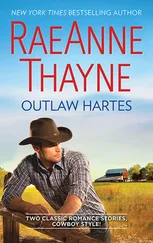Every alarm in the building went off at once. A cop, minus trousers, ran screaming up the stairs, pursued by several naked lady drunks.
The uproar was decidedly oppressive.
“If there’s anything I dislike,” I yelled at Michael, “it’s…” I couldn’t think of a word for it, so I made a wide gesture intended to take in the whole scene. Unfortunately, the gesture caught an approaching plainclothesman right in the Adam’s apple, and he fell to the floor, not quite saying anything.
Mike got to his feet, saying, “Bad company down there,” and giggling disgracefully.
“Hurrah!” Fellatia bellowed in a window-breaking tone. Several windows promptly broke.
“Our Father,” the sergeant yelled, “who art in Halp!”
Then, “What’s going on here?” said a voice so deep and authoritative that everyone stopped whatever he or she or it was doing and fell silent for a minute.
A tall, grizzled man in conservative red business clothes, full of dignity and power and the majesty of the law, strode through the middle of Mick’s temporarily frozen orgy. He stopped in front of the desk and looked around disgustedly.
“You,” he told the sergeant firmly. “Get dressed.”
“I can’t!” the sergeant wailed. “This broad, she…”
“Quiet. I’m Special Investigator Blake.” I wondered about that.
Fellatia subtly advanced on him.
“Back,” he ordered. She moved back. I was impressed.
Then, “You,” clearly meaning us. “I want to talk to you.” He looked around at the still frozen orgy with incredible disdain. “Come with me.” He started toward the door, and we followed. “No use trying to talk in this madhouse.”
We reached the door together and passed out into the cool, still darkness. “Come with me,” he said again, heading toward Sheridan Square. We went.
We hadn’t gone half a block when the noise broke out anew in the precinct house behind us. The special investigator sniffed disapprovingly. We said nothing. The noise was louder than before.
We turned a corner and passed out of sight of the station, but the noise remained impressive.
“Where are you taking us, sir?” asked Michael with unusual respect.
The special investigator stopped, regarding us both with grim intensity. Then he grinned, tipped his hat, and vanished.
“Wow,” I said after a while. “How did you do that?”
“Me? I thought you did it.”
The noise followed us halfway home.
SO THERE I was at half-past ten on Tuesday morning, feeling a good bit less than myself and not at all happy about it, sitting in that same old two-bit candy store across the street from Laszlo’s pad, waiting for the Bard of MacDougal Street to appear. That same suspicious counterman was being suspicious again, and surly to boot. The coffee tasted foul. The street looked foul. The thought of having to follow Laszlo, that notorious author of cacography, was insufferably foul, and I could think without straining of forty-seven places I’d rather be, none of which I even liked.
The counterman and an absurdly ancient crone in clothes her mother must’ve given her were conducting in some nameless tongue an acrimonious debate of which I was probably the subject.
Once again I tried to contact Michael on the wrist radio. No soap. I was not pleased.
All through breakfast I’d tried, with my best talmudic logic, to prove that Laszlo had obviously scored on Monday and that it was therefore foolish to follow him today. But Mike is always unreasonable in the morning, and there I was.
There I was alone, furthermore. Sean, who was supposed to be helping me, was at the doctor’s instead, recovering from some excess of Sativa’s. Great. And I couldn’t raise Mike on the radio.
I was inconspicuously dressed, as is my wont; this time in early-eighteenth-century French costume: swallowtail red satin coat with gold brocade, white on white linen shirt with lace front and cuffs, knee-length gold satin breeches, anachronistic black patent leather high boots with silver buckles and high heels — a fairly popular outfit that summer, but, I was learning, much too hot for the day and the job before me. Thanks to my early-morning inner smog, I was also carrying my trusty briefcase, empty.
And then it was eleven, and there were four count ’em four old crones huddled with the counterman in highly foreign languages. Now and then one of them would point a crooked finger at me. I was becoming somewhat uncomfortable.
It kept getting later — eleven-ten, eleven-thirty, you know how it does. No Laszlo. No Michael on the radio. The coffee got no better. The old crones multiplied. I spilled coffee on my shirt front. It was being a middling bad day.
“Hey, you,” the counterman said after a while. “Whaddaya doon here, hey, whaddaya doon? Gedoudda here, ya flippin’ beatnik freak. Whassa mattah, ya Crazy’r sumpin’? Gedoudda here. I youghtta calla cop ya flippin’ freak.”
I decided to leave. The coffee was pretty bad, anyhow.
The counterman followed me to the door, saying impolite things. The assembled crones egged him on in Etruscan or whatever it was they spoke, if that’s what they did. One of them aimed arcane gestures at me.
Still no Laszlo. Still no Mike. I pretended to be interested in a hardware store window for a while, until the proprietor came out and offered to help me. Then I feigned interest in a window full of dusty lingerie.
I was being fascinated by an altogether empty store window when Laszlo finally appeared, somewhere on the other side of noon. By then I was so far gone that I’d’ve missed him altogether, but he passed right by me and his aroma — a complex mixture of funk and other essences distinctively his own — jarred me into moderate awareness. I let him get a half block lead, as Mike’d suggested, and then doggedly set out after him.
Aesthetic considerations aside, Laszlo wasn’t hard to follow. He was wearing a battery-powered electric green tuxedo, some four years out of style, that would’ve stood out like an electric green tuxedo in a London fog at midnight, and he walked so slowly that my only problem (aesthetic considerations aside) was to keep far enough behind him.
“The lame duck has flown the coop,” I hopefully told the radio, using the code Mike and I’d agreed upon at breakfast. “I am following. Do you read me?” No response. Perhaps, I wished, my radio just wasn’t receiving.
Laszlo ranged the East Side like a slug in a rose garden, making numerous stops at this, that, and the other disreputable dive, but no stops long enough for me to grab some lunch or get rid of the coffee I’d taken on whilst waiting for him. You can always count on Laszlo, yes indeed.
I kept my mute wrist radio fully informed of Laszlo’s movements, on the off chance that Michael could hear me, but the longer we walked the less hopeful I was. Laszlo was clearly embarked on an endless chain of trivial errands, and I was doomed for my psychedelic sins to follow him forever. The temperature, furthermore, chose to linger in the nineties, and the smog became alarming, and I’d left my smog mask home.
We roamed through the East Side, always tending downtown, never stopping long enough for me to satisfy any of my needs, until just past five. We were on Canal Street then, Laszlo on the south side, I on the north. He stopped in front of a grotesquely ruinous loft building, one of those hundred-year-old, seven-story horrors, blackened brick and rusty fire escape, that leaned a nervous five degrees forward over the street. I hid myself in a urine-scented doorway and watched.
All at once Laszlo was being furtive. He looked suspiciously in all directions, peering myopically into infinity. He checked a watch I’d not have guessed he owned. He looked around again, then ducked into the building.
Читать дальше











